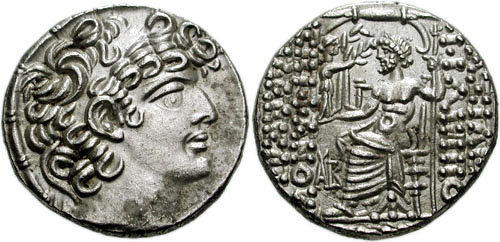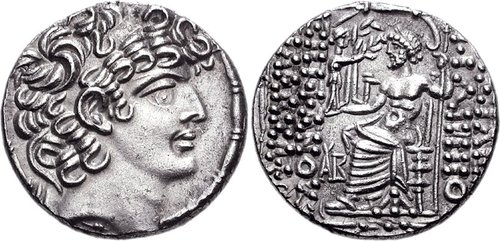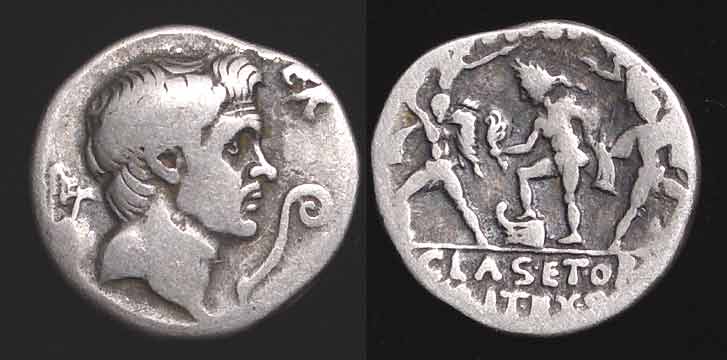Aulus Gabinius
Aulus Gabinius († 48 BC or early 47 BC, probably in Salona ) was a Roman politician and general; he was a follower of Pompey, an important person in the last years of the Republic.
Life
67 BC he brought as a tribune of the people with the Lex Gabinia a law by which Pompey the command in the war against the pirates with extensive power and control of the Mediterranean and up to 50 miles ( about 90 kilometers ) assured into the country. Two other measures of Gabinius forbade the lending of money to foreign ambassadors (to check corruption in the Senate ) and referred to the Senate foreign embassies to grant audience on certain days ( February 1 to March 1 ).
61 BC, now as Praetor, Gabinius was trying to win the favor of the public by promising games in hitherto unusual magnitude. In 58 BC, he succeeded to become consul, which he exposed himself to the suspicion of bribery. During his tenure, he helped Publius Clodius Pulcher, Cicero to send into exile. 57 BC Gabinius went as proconsul to Syria, where he began Hyrcanus as high priest in Jerusalem, uprisings suppressed by continued significant changes in the administration of Judea and some cities had it rebuilt.
During his absence in Egypt, whither he had been sent by Pompey without the consent of the Senate, to Ptolemy XII. reinstate as pharaoh, Syria was hit by bandits; Alexander, son of Aristobulus II, picked up arms to expel Hyrcanus from his office. With some difficulty Gabinius presented the restored order and delivered in the year 54 BC the province of Marcus Licinius Crassus his successor. The Knights, who had suffered heavy losses during his tenure in Syria, brought him when he appeared for the annual report to the Senate, because of three charges in court, which concerned all a felony.
From the indictment of majesty ( high treason ), because he had left the province without the consent of the Senate and the Sibylline books in spite he was acquitted - it was alleged that the judges were bribed, and even Cicero, an enemy of Gabinius was been persuaded by Pompey, to say as little as possible. In the second indictment, which the repetundae ( extortion of the governor ) with particular reference to the 10,000 talents which Ptolemy had paid him for his reinstatement, he was found guilty, in spite of the evidence offered Pompey in his favor, despite the witnesses from Alexandria and the eloquence of Cicero, who was asked to plead in this case. Only the desire to Pompey to do a favor, had been able to bring Cicero to the thing to take: it is implied that his only half-hearted apology contributed to Gabinius ' conviction. The third accusation, which the ambitus ( illegalities in the examination of his election as consul ) was then allowed to fall; Gabinius went into exile, his property was confiscated.
After the outbreak of the Civil War he was 49 BC by Caesar recalled. Gabinius entered into Caesar's services, but did not occur actively against his former patron Pompey. After the battle of Pharsalia, he was commissioned to bring some recently excavated troops to Illyricum. By land there, he was attacked by the Dalmatians and with difficulty he managed to get to Salona. Here he defended himself bravely against the attacks of the Pompeian commander Marcus Octavius , but died after a few months ( 48 BC or early 47 BC) from a disease.










